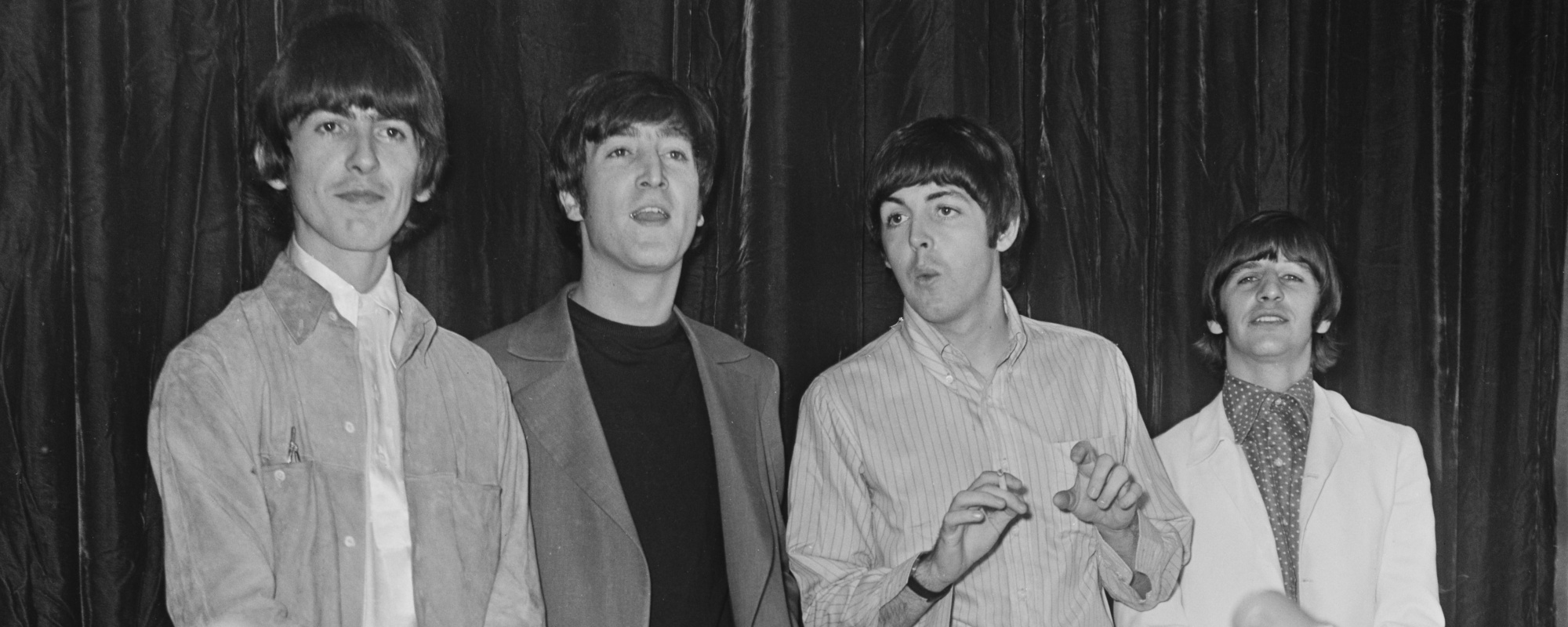Foreigner received its first ever nomination to the Rock and Roll Hall of Fame this year. It’s hard to imagine that would have happened had they not made the creative leap they managed on their landmark 1981 album 4.
Videos by American Songwriter
To make the record, Foreigner had to indulge in a bit of an out with the old, in with the new mindset. Let’s look back to the record that helped this band make it from one decade to the next not just intact, but thriving.
Four Minus Two
Another band in Foreigner’s situation heading into their fourth album wouldn’t have made many drastic changes to their formula. After all, their first three LPs all soared to the Top 5 in the U.S., and they notched four Top 10 singles from those records. Yet their third album, Head Games, dropped off a little bit from the previous two in terms of commercial success and quality, as guitarist Mick Jones admitted to Louder Sound:
“OK, we’d beaten the jinx of the first album being a flash-in-the-pan with Double Vision being so strong, but I think on Head Games we really went into ‘excessive mode.’ The drugs came into the picture a bit too much there. So we kind of had a massive hangover after that album [laughs]. I look back on it and think it wasn’t quite focused. We tried to toughen the image of the band up with “Dirty White Boy” and “Head Games” itself, but that’s where the question about where we were going originated.”
On top of that, a crisis of sorts was brewing, in that band members Ian McDonald and Al Greenwood wanted to take more of the songwriting duties. Jones, who had essentially founded the band and had long served as its chief songwriter, didn’t want to relinquish that role, feeling that he and singer Lou Gramm had found an excellent writing groove that didn’t need to be disturbed. As a result, McDonald and Greenwood were let go from the band prior to the recording of 4.
That narrowed the band down to four for 4, with Gramm and Jones joined by bassist Rick Wills and drummer Dennis Elliott. It also left a gap in keyboard duties. After auditioning several candidates, they settled on Thomas Dolby, a budding British artist whose facility with synthesizers dovetailed with the forward-looking direction the band wanted to take on the new album. Dolby’s contributions (such as the synth wash that opens up “Waiting for a Girl Like You”) were subtle but crucial in modernizing the band’s sound for the ’80s. (Dolby used money that he made from the gig to help make his own music, which included the massive 1982 single “She Blinded Me with Science.”)
Miraculous Mutt
When it came time to hire a producer, Jones was keen to connect with Robert John “Mutt” Lange, who had nearly helmed Head Games. By the time of 4, his profile had risen thanks to the incredible work he did on Back in Black by AC/DC. Jones and Lange both had strong ideas of what the songs should sound like, which led to both studio battles and an album that ran over time and over budget.
But all that perfectionism paid off. Take, for example, the sizzling single “Urgent.” Lange located the guitar riff after insisting on going through all of Jones’ rough writing scraps for the album. The song built up from there, with that riff layered again and again on top of itself while a swinging rhythmic bed pushed it along. Gramm sang the track with wild fervor. To top it all off, the band enlisted Junior Walker, the R&B legend responsible for the classic “Shotgun,” for a sweaty saxophone solo.
Foreigner had also made the decision to release a ballad as a single for the first time. Written by Gramm and Jones, “Waiting for a Girl Like You” paired a moody melody in the verses with a powerhouse chorus. The song narrowly missed the top of the charts, an honor the band would eventually achieve three years later with another ballad, “I Want to Know What Love Is.”
To ensure that people didn’t forget about their status as wailing rockers, Foreigner also delivered “Juke Box Hero,” a guitar-heavy piece of music mythology. If nothing else, 4 displayed just how versatile this band could be, a trait that would serve them well as they moved through the decade and rock continued to splinter into sub-genres.
The Legacy of a Classic
4 still sounds fantastic today, which is understandable when you consider the razor-sharp songwriting, exciting production, and outstanding performances. Listen again, and you’ll likely be pleasantly surprised at the diversity of it, including the catchy power pop of “Luanne” and the soulfulness of album-closer “Don’t Let Go.”
The difficulties the band encountered in bringing the album to life eventually caused issues, as a rift between Jones and Gramm started to develop around that time. But it’s hard to say that 4, a masterpiece of arena rock, was anything but worth it.
When you purchase through links on our site, we may earn an affiliate commission.
Photo by David Redfern/Redferns













Leave a Reply
Only members can comment. Become a member. Already a member? Log in.